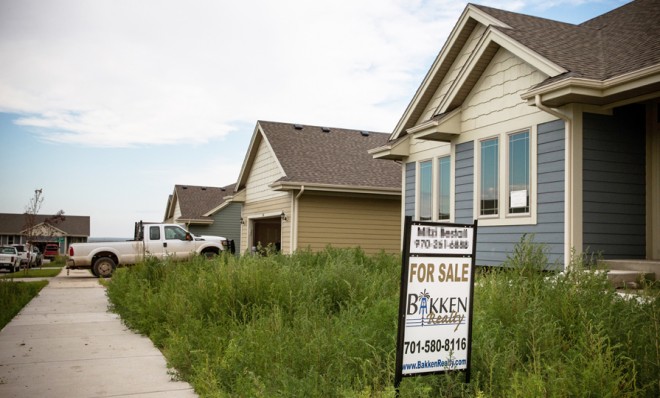How the government shutdown could drag down the housing recovery
The longer it lasts, the worse it will be

A free daily email with the biggest news stories of the day – and the best features from TheWeek.com
You are now subscribed
Your newsletter sign-up was successful
Beyond the normal inconveniences — interruptions in Medicare, the darkening of the National Zoo's panda cam — the government shutdown threatens to rain on the one bright spot of the economic recovery: The housing market.
Lenders looking to process new mortgage applications will be blocked from basic services, like verifying Social Security numbers and tax return documents from the Internal Revenue Service. This will slow down the process of taking out a mortgage.
Another potential hold-up is with the Federal Housing Administration, which represents about 15 percent of the mortgage market. Contrary to previous reports, the FHA will stay open, but with only about 10 percent of its staff, says Bloomberg Businessweek. For the time being, the agency "will be available to underwrite and approve loans," says a report on HUD.gov. But that ability will be undermined if the government shutdown drags out:
The Week
Escape your echo chamber. Get the facts behind the news, plus analysis from multiple perspectives.

Sign up for The Week's Free Newsletters
From our morning news briefing to a weekly Good News Newsletter, get the best of The Week delivered directly to your inbox.
From our morning news briefing to a weekly Good News Newsletter, get the best of The Week delivered directly to your inbox.
Because we are able to endorse loans, we don’t expect the impact on the housing market to be significant, as long as the shutdown is brief. If the shutdown lasts and our commitment authority runs out, we do expect that potential homeowners will be impacted, as well as home sellers and the entire housing market. [HUD.gov]
Meanwhile, the U.S. Department of Agriculture, which backs mortgages for homes in rural areas, will close down services for the duration of the shutdown.
All of these factors combined could, over time, slow the economic recovery, in which the housing market has been a linchpin. When housing is strong, more homes are being built, which means more construction jobs, more mortgage financing, more manufacturing, and even more auto sales (builders buy trucks to transport materials). A long shutdown could put the brakes on that.
This is "exactly what the housing recovery does not need," says Diana Olick at CNBC.
Olick does, however, point out a possible upside:
A free daily email with the biggest news stories of the day – and the best features from TheWeek.com
Of course, mortgage rates could move lower if investors head to the relative safety of the bond market and drive yields down. Mortgage rates follow loosely the yield on the 10-year Treasury. [CNBC]
But even then the uncertainty could take a psychological toll. "Consumer confidence is a key component of the housing recovery," says Olick. "While rising home prices have helped, more uncertainty in the economy can only hurt."
Carmel Lobello is the business editor at TheWeek.com. Previously, she was an editor at DeathandTaxesMag.com.